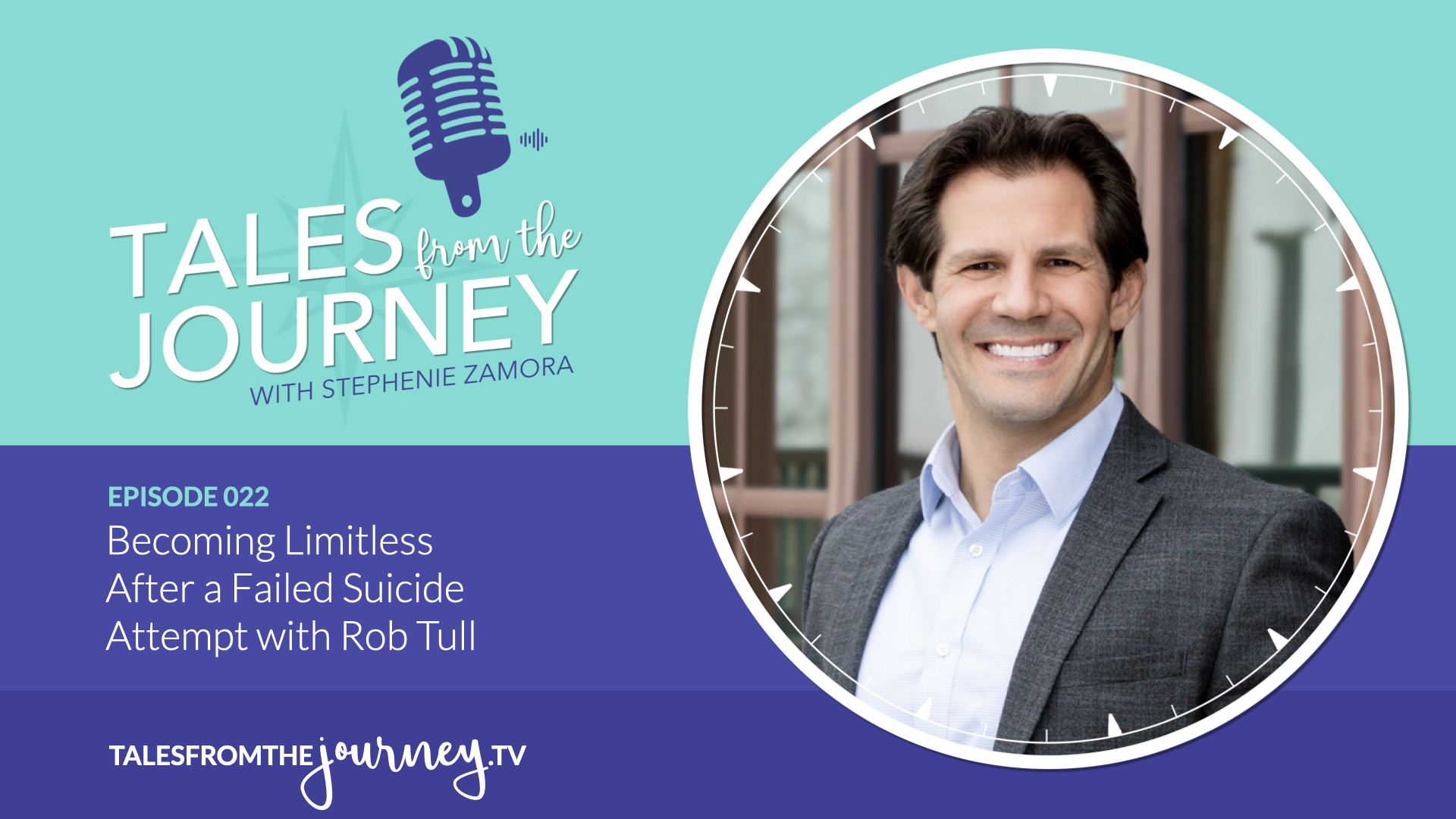Podcast: Play in new window | Download
Don't miss an episode! Subscribe now! Apple Podcasts | Spotify | Amazon Music | RSS | More
Today I’m talking with Rob Tull about becoming limitless after a failed suicide attempt. Rob’s an author, speaker, and creator of the Path2 Program. After spending 20 years at a job and in a life that didn’t reflect who he truly is, the pressure of keeping up this version of himself that looked great from the outside began to destabilize him. With this unraveling came toxicity and exhaustion. He felt the only way to continue in his provider role was to end his life, and in 2018, he attempted suicide. While this attempt was ineffective from a biological perspective, it was highly effective from an emotional and mindset perspective. After waking up to discover he was still here on this earth to continue this life, he started making the changes needed to be the parent, employee, and person he wanted to be. Now, Rob’s dedicated to helping parents find their best path to happiness, fulfillment, and success.
What to Listen For:
- Working in financial services for 20 years even though, by nature, he felt like more of an artist
- Being raised as a boy with the mentality that he was responsible for providing for his family at all costs
- Taking the well-worn path because that’s what he thought he was supposed to do
“The problem with committing to one path and then continuing to double down on it is that things start to rely on you. I established a family. I now had dependents. I had all this structure dependent on me continuing to follow this path of being a provider on this one avenue until at some point you either run out of stamina or you run out of opportunities. And for me, I ran out of stamina, and I got stuck.“
- Not having a support network that allowed flexibility
- Grasping at things that could create progress
- Accepting a highly regarded promotion, working 15-18 hour days seven days a week, traveling every other week, and not enjoying himself
- Becoming toxic to his family as a result of not getting to recharge
- Asking his partner about leaving his career to do something different and being met with resistance
“My partner didn’t tolerate that. It was, ‘No, you can’t leave your career and walk away from this earning potential. You’re at an elite level.’
So I was basically told the thing that was a wrong decision from 20 years ago; you can’t undo that. And so there was a feeling of being really trapped and so, being a very rational person and being highly analytical. The conclusion I came up with the best solution was, well, how do I get unstuck?
How do I get out of this situation, and how do I still provide for a family, like I resolved to do? And how do I deal with the idea that I don’t see a future in front of me? Cause everything was just taken away. And so suicide was the most practical solution.“
- Attempting suicide in July of 2018 in front of his sons
- Having a support system but still keeping things to himself
- Changing how he saw himself in terms of his identity and ideals
- Understanding that his identity as a protector, provider, and martyr marginalized his existence
- Unplugging and getting to know himself
- How the concept of emptiness helped him put his life back together in a more authentic way
- The concept of the junk drawer
- How he knew checking into the treatment facility was the right decision
“There were two criteria that I realized I had, which was willing and desperate. I clearly was willing to make a change. I wanted everything to end. I clearly was willing. And I was desperate because I used the most extreme solution I could think of. And it didn’t work. Well, now I’m desperate. I don’t have the answer.“
- Being able to let go of everything, including his inner voice
- Letting go of pride and determining what real strength is
- Identifying the things he needed to do for himself
- Realizing he felt called to desert areas and allowing himself to make that move
- Finding a way to keep his job and find joy in it
- Changing the way he approached family
- Letting go of the idea he had of what it meant to be a father
“Once I let go of that idea of being a father in my mindset model, I could then be it in a way that actually fit my life and my kids. And so that whole reorientation process was really about challenging the preconceived notions and being willing to get rid of old models that weren’t serving me.
And those two things really allowed me to not just see things differently, but actually, behave differently in a way that was more aligned with my own purpose.“
- Tracking when he felt like he was in the flow
- Looking for those elements in his life to find the best path forward
- Addressing all the things he left unaddressed on his original path
- Detaching himself from the outcome of his career and life and everything lowering in severity as a result
- Taking off the heavy cloak of the responsibility of being a father and redefining what fatherhood meant
- Shifting into being the father his kids needed, not the dad he thought he was supposed to be
- Having an incredible support system and moving away from them all, but not losing those relationships
“It was almost like training wheels on this new self-identity that I had where it was like, okay, I can kind of figure this out on my own. And if stuck, it’s a little scary. I have this support system. And so that was really cool. Cause I didn’t feel like, I think if I stayed in the same spot, I’d feel smothered where I’d still be expected to perform in the same role. And so this allowed me to redefine my role and know I still had a safety net under me.“
- Learning to trust himself
- His worst-case scenario model
- Being a recovering perfectionist and learning the willingness to be wrong
- Overcoming limiting beliefs of what he can do in his circumstances
- How the junk drawer helped him build the life that actually lights him up
- Gaining the confidence to know he could do whatever he wants
- Stepping into his purpose
“I really want to embark on developing a course and empowering people to give this information to somebody. Because I paid an extreme cost to get this. It’s not fair that everyone else should have to pay the same cost.”
- Looking at what’s working in life and what isn’t
- Realizing the re-invention process isn’t insurmountable
“It’s never too late. And that’s the other thing too, is when we ended up committed on a certain path for a while, and then we get stuck and things blow up or fall apart, there’s that question of, did I miss it? Did I miss my opportunity to get what I want in regrets and nasty things?
There are tons of studies on what happens with regret. And so knowing that there’s still time and it doesn’t take a lot that it’s the slightest change that can alter the outcome was a good guiding light for me throughout this entire process.“
- What he wishes he would have known at the start of his adult life and what he would have done differently
About Rob Tull:
Rob Tull is an author, speaker, and the creator of the Path2 Program. Rob helps parents get unstuck – personally or professionally – and find the best path to their happiness, fulfillment, and success. He created the Path2 Program out of life-or-death necessity. Rob’s approach opens our minds to possibility and guides us to the path to realize those possibilities now. The Path2 Program has appeared in 3 international best-selling books for parents.
Rob is a Certified Professional Coach, with a Master’s degree in business law from Loyola University of Chicago School of Law, a Bachelor’s degree in finance from Villanova University and, several advanced professional certifications. He is an executive, thought-leader, professor, success coach, author, speaker, and single father.
Website and social media links:
https://www.path2coaching.com
https://www.facebook.com/path2coaching
https://www.facebook.com/rstull3/
Check out Rob’s free Path2 ebook here:
https://path2coaching.com/downloads/path2-program-e-book/
Resources:
Access our free 8-part Journey Mapping™ sampler program and begin uncovering the purpose of your path at www.TalesFromTheJourney.tv/Free/.
Read my memoir, Unravel: Rising Up and Coming Back from a Season of Living that Damn Near Killed Me at www.TheUnravelBook.com.
Tales from the Journey™ is a Stephenie Zamora Media Production in partnership with the phenomenal producers at Your Voice Better.




